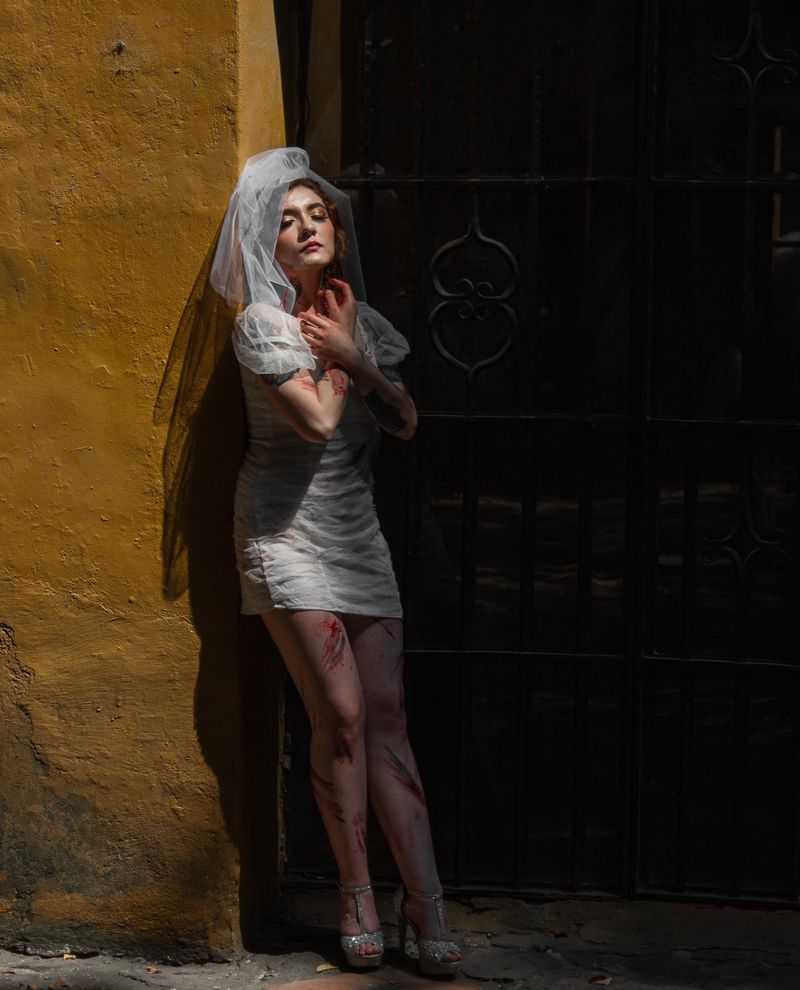Black Mirror Season 6: A Reflection on Technology and Society
After a four-year hiatus, creator Charlie Brooker has returned to Netflix with a new season of the dark anthology series, Black Mirror. This critically acclaimed show has become known for its chilling visions of the intersection between technology and society. However, Season 6 takes a slightly different approach, with episodes that are less focused on the dangers of technology and more on other societal issues.
Episode 4: “Mazey Day”
The fifth-ranked episode of the season, “Mazey Day,” is set in the early 2000s and explores the world of paparazzi photographers and celebrity exploitation. While it lacks the technological aspect that has been a hallmark of Black Mirror, it delves into the dark side of the entertainment industry. However, the commentary may feel outdated, considering recent reckonings with mistreated figures from that era. The plot twists are predictable, and ultimately the episode falls flat.
Episode 2: “Loch Henry”
“Loch Henry” takes a satirical look at present-day Scotland and the commodification of nature through the lens of true crime documentaries. While the episode has some observant jabs at the aesthetics of streaming-era crime docs, its critique of the genre feels redundant and belated. The glib ending undermines any enjoyment that may be derived from the episode.
Episode 1: “Joan Is Awful”
In the season premiere, “Joan Is Awful,” the show takes a meta turn by depicting a woman who finds herself living in a TV series. While this episode touches on various contemporary tech ethics issues, it fails to offer chillingly astute insights. Instead, it provides surrealist fun in the vein of “Being John Malkovich” and takes shots at the streaming industry. The standout performances and clever nods to the streaming wars make it an enjoyable watch, albeit lacking in depth.
Episode 5: “Demon 79”
“Demon 79” deviates the most from the typical Black Mirror formula, transporting viewers back to 1979 and into the realm of occult horror. Although it lacks the technological aspect usually associated with the series, it offers a refreshing and engaging storyline. The witty screenplay, buckets of blood, and righteous vitriol make this episode a standout among the season. With a different packaging, it could have even been a standalone movie from the creator of Black Mirror.
Episode 3: “Beyond the Sea”
The top-ranked episode of the season, “Beyond the Sea,” harkens back to the emotional depth and complexity that Black Mirror is known for. Set in an alternate 1969, the episode follows two astronauts who use robotic replicas of themselves to be in two places at once. Through this technology, the episode explores themes of human emotions and relationships. Aaron Paul delivers a stellar performance, and the ending, though divisive, is a matter of taste.
Philosophical Discussion: Redefining Black Mirror
The shift in focus seen in Season 6 of Black Mirror raises interesting questions about the show’s purpose. Is it necessary for Black Mirror to always center around the dangers of technology? Or can it evolve and explore other societal issues while retaining its core essence?
Black Mirror has always served as a commentary on the relationship between technology and society, prompting critical reflection on our increasing reliance on digital advancements. However, as technology becomes more ingrained in our daily lives, it is equally important to critically examine other aspects of our society, such as celebrity culture, true crime fascination, and human emotions. By expanding its scope, Black Mirror can delve into different dystopian worlds and prompt discussions on the darker sides of our society beyond technology.
An Editorial: Black Mirror’s Impact on Society
Over the years, Black Mirror has earned a reputation for its thought-provoking storytelling and ability to generate conversations about the ethical implications of technology. The series has served as a mirror, reflecting the potential consequences of our technological choices and their impact on society.
While Season 6 may have deviated from the traditional “What if phones, but too much?” formula, it reminds us that Black Mirror is more than just a cautionary tale about technology. It is a cultural touchstone, challenging us to critically examine the world we live in and the choices we make.
Black Mirror’s influence extends beyond entertainment, with episodes like “Nosedive” prompting discussions on the dangers of social media obsession, and “USS Callister” highlighting the dark side of online gaming communities. By exploring different facets of our society, Black Mirror encourages us to question our values, ethics, and the consequences of our actions.
Advice: Embracing the Black Mirror Experience
As viewers, it is essential to approach Black Mirror with an open mind and a willingness to engage with the difficult questions it poses. Each episode offers a unique perspective on societal issues, blending speculative fiction with real-world concerns. By embracing the Black Mirror experience, we can gain a deeper understanding of the complexities of our modern world.
While some episodes may resonate more than others, it is important to appreciate the diversity of storytelling within the series. Black Mirror pushes boundaries, challenges norms, and forces us to confront uncomfortable truths. It sparks conversations and encourages us to reevaluate our relationship with technology, fame, and society as a whole.
By engaging with Black Mirror, we can become active participants in shaping our future. It prompts us to consider the implications of our choices and encourages us to use technology responsibly. Ultimately, the show serves as a reminder that we have the power to shape our world—it’s up to us to decide whether it’s a dystopia or a utopia.
 Nik >>
Nik >>
The image is for illustrative purposes only and does not depict the actual situation.
You might want to read !
- Black Mirror Season 6 Review: Exploring Netflix’s Resurgence in Sci-Fi Brilliance
- Is Overwatch 2 Season 6 Poised to Revolutionize the Game?
- Remembering Mike Batayeh: A Tribute to the Late “Breaking Bad” Actor and Comedian
- “Get a Sneak Peek of Secret Invasion: A Guide to Watching the First 5 Minutes”
- Has the White House press secretary violated the rule against politics on the job?
Title: Exploring the Boundaries: The White House Press Secretary’s Alleged Rule Violation
- Trump’s Plea: Not Guilty to All 37 Charges in Classified Documents Case
- “Assessing Germany’s Performance: A Closer Look at the International Friendly Against Ukraine”




